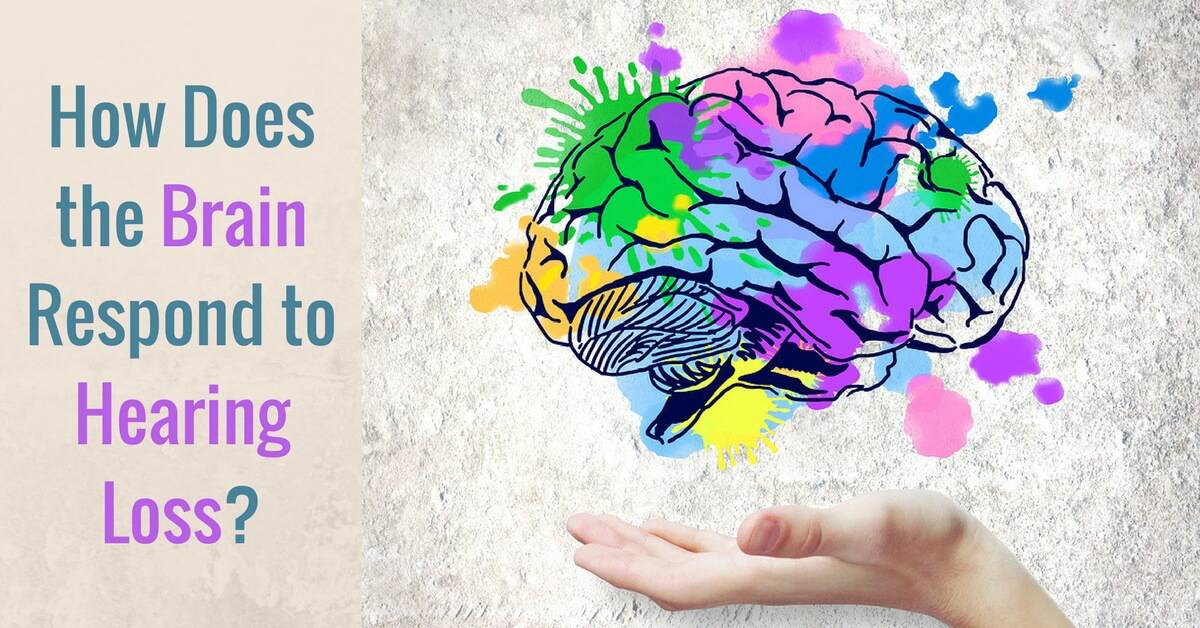Did you know that hearing actually happens in the brain? While our ears do play an important part in conducting sound, it is our brains that process and recognize sounds in our environment. As such, hearing loss affects more than just our ears. In recent years, a number of new studies have uncovered the effects of untreated hearing loss on the brain.
From an increased cognitive load to a potential risk for dementia, it is important to seek treatment for hearing loss as soon as we recognize the signs.
Study: The Portion of the Brain Devoted to Hearing Can Become Reorganized with Early-Stage Hearing Loss
In a report from May 2015 published by the Acoustical Society of America (ASA), researchers from the University of Colorado suggested that with early-stage hearing loss, “the portion of the brain devoted to hearing can become reorganized – reassigned to other functions – and may play a role in cognitive decline.”
At the core of this study is the idea of neuroplasticity, as applied by Anu Sharma of the Department of Speech Language and Hearing Science at the University of Colorado. Neuroplasticity is “the ability of the brain to forge new connections, to determine the ways it adapts to hearing loss, as well as the consequences of those changes.” In this study, Sharma and her fellow researchers studied the brain waves of adults and children with hearing loss or deafness and recorded the ways in which their brains responded to sound stimulus. Sound stimulus included recorded speech syllables or other sounds.
Sharma and her team discovered that “the areas of the brain responsible for processing vision or touch can recruit, or take over, areas in which hearing is normally processed, but which receive little or no stimulation in deafness.” In other words, this “cross-modal cortical organization” suggests that other senses must overcompensate for what is absent with hearing loss. This is not necessarily a good thing, according to Sharma: “The hearing areas of the brain shrink in age-related hearing loss. Centers of the brain that are typically used for higher-level decision-making are then activated in just hearing sounds.” In other words, “these compensatory changes increase the overall load on the brains of aging adults” which “may be a factor in explaining recent reports in the literature that show age-related hearing loss is significantly correlated with dementia.”
Hearing Loss and Dementia
Prior to this new research from Sharma, researchers at Johns Hopkins University discovered the correlation between hearing loss and an increased cognitive load, which could eventually lead to the development of dementia.
In 2011, Dr. Frank Lin and his team looked at how hearing loss affects cognitive brain function. Over nearly two decades, Lin and his team tracked 639 people whose hearing and cognitive abilities were tested in the early 1990s. These participants were examined and given hearing examinations every one to two years. At the end of the study, researchers determined that “study participants with hearing loss at the beginning of the study were significantly more likely to develop dementia by the end. Compared with volunteers with normal hearing, those with mild, moderate, and severe hearing loss had twofold, threefold, and fivefold, respectively, the risk of developing dementia over time. The more hearing loss they had, the higher their likelihood of developing the memory-robbing disease.”
Researchers believe that untreated hearing loss has the potential to create a heavier cognitive load for the brain. Resources that would be used for other cognitive processes would go towards making sense of unclear sound signals. Over time, this heavier cognitive load potentially contributed to dementia.
Fortunately, there is a way to address this issue. A 2011 study from Japan gave participants with varying levels of hearing auditory and cognitive examinations over the course of three years. Results showed that participants with hearing loss who were prescribed hearing aids early on maintained higher cognitive abilities compared to subjects with untreated hearing loss. While there is still more research to be done on this correlation, one thing is clear: hearing aids do support your brain in the hearing process.
Schedule an Annual Hearing Test
With over 30% of people age 65 and older and 50% of people age 75 and older experiencing some degree of hearing loss, it is important to make sure that you are well aware of your hearing abilities. It is recommended that at age 50, you begin to take an annual hearing test. Even if you do not think you are experiencing changes in your hearing, an annual hearing test sets an important baseline of your hearing abilities, which allows us to identify any changes should they ever occur. If a hearing loss is found, this ensures that you will be treated for it immediately, which brings significant benefits to your overall well-being.
To learn more about hearing loss and to schedule a hearing test, contact us at Hearing Wellness Solutions.


